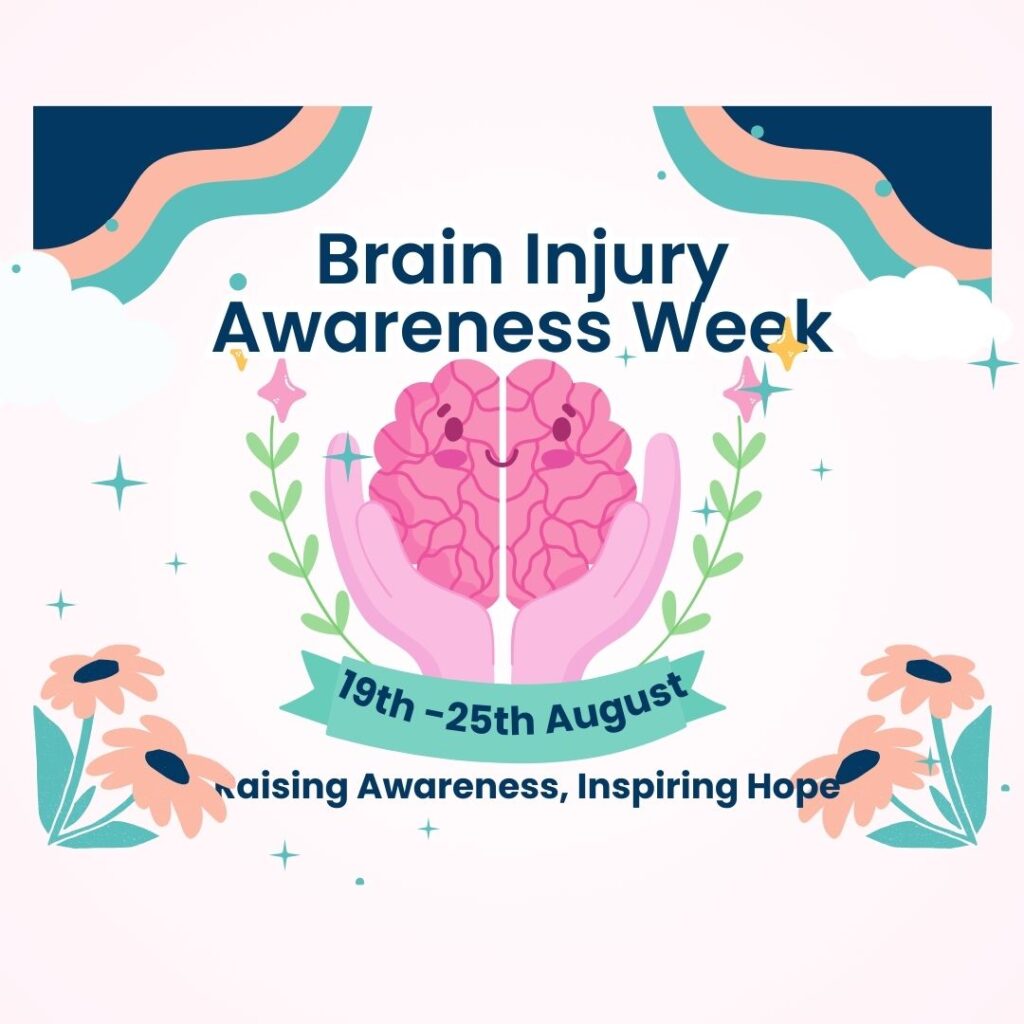Common Myths About Speech Therapy Debunked: Setting the Record Straight for Speech Pathology Week

Common Myths About Speech Therapy Debunked: Setting the Record Straight for Speech Pathology Week Common Myths About Speech Therapy Debunked: Setting the Record Straight for Speech Pathology Week September 2, 2024 Speech therapy is essential for helping individuals overcome communication challenges, but it’s often misunderstood. During Speech Pathology Week, we at Concept Care want to debunk common myths about speech therapy to clarify its processes and effectiveness. Here are some of the most prevalent misconceptions, along with the truths that will help you better understand this vital field. Myth 1: “Speech Therapy is Only for Children” It’s easy to associate speech therapy with children, but speech pathologists work with individuals of all ages. At Concept Care, we support both children and adults. For example, adults recovering from strokes or managing conditions like Parkinson’s disease may require therapy to regain communication abilities. Speech therapy also addresses voice disorders, swallowing difficulties, and cognitive-communication disorders for older adults. Myth 2: “Speech Therapy Only Focuses on Speech Sounds” Many people believe that speech therapy is only about correcting how words are pronounced, but the reality is far broader. Speech pathologists work on language comprehension, social communication, fluency issues (such as stuttering), and even non-verbal communication methods like augmentative and alternative communication (AAC) devices. At Concept Care, our speech pathologists provide comprehensive support tailored to each client’s unique communication needs. Myth 3: “Speech Therapy Will Fix the Problem Quickly” Speech therapy is not a quick fix. It requires time, patience, and consistent effort. At Concept Care, we emphasise that everyone progresses at their own pace. The duration of therapy depends on factors like the severity of the issue, the individual’s age, and the specific goals of the therapy. Our speech pathologists work closely with families to ensure that progress is steady and meaningful, focusing on long-term improvements. Myth 4: “Children Will Outgrow Speech and Language Problems” While some children may naturally outgrow minor speech delays, waiting for them to catch up without intervention can lead to missed opportunities. Early intervention is often key to success. At Concept Care, our speech pathologists assess children early to determine whether therapy is necessary, helping to prevent potential academic, social, or emotional difficulties down the road. Myth 5: “Speech Therapy Isn’t Effective for Adults” Speech therapy can be highly effective for adults, whether they’re recovering from an injury, managing a degenerative condition, or seeking to improve their communication skills. At Concept Care, we work with adults of all ages, offering targeted therapy that can lead to significant improvements in their ability to communicate and function daily. Our clients often see life-changing results through individualised treatment plans. Myth 6: “Speech Pathologists Only Work in Schools” Although schools are a common setting for speech pathologists, their scope of work extends far beyond the classroom. At Concept Care, our speech pathologists work in a variety of settings, including private homes, community health centres, and specialised clinics. We collaborate with a range of professionals to offer holistic care, ensuring our clients receive the best support possible. Myth 7: “Speech Therapy is Just for People Who Stutter” While stuttering is one area of speech therapy, it is far from the only focus. Concept Care’s speech pathologists work with clients on language delays, articulation issues, cognitive-communication problems, and more. Whether someone has difficulty swallowing, needs help with voice control, or requires an alternative communication method, we provide solutions that meet their unique needs. The Real Truth: Speech Therapy Transforms Lives Speech therapy changes lives by improving communication skills and fostering independence. At Concept Care, our speech pathologists design personalised treatment plans to meet the needs of every client. Whether it’s helping a child speak more clearly or assisting an adult in regaining communication after an illness or injury, the work our team does is transformative. Recommended to read The Role of Therapy in Disability Support: Speech, Occupational, and Physiotherapy Services in Sydney Celebrating Speech Pathology Week with Concept Care This Speech Pathology Week, Concept Care is proud to celebrate the incredible work of our speech pathologists. They play an essential role in improving the lives of individuals with communication and swallowing difficulties. We hope this article helps raise awareness about the importance of speech therapy and clears up common misconceptions. At Concept Care, we believe in the power of communication and the life-changing potential of speech therapy. We’re here to help individuals of all ages unlock their potential and achieve a better quality of life through speech pathology. Let’s use this Speech Pathology Week as an opportunity to highlight the transformative impact of this field and the professionals who make it possible. If you or a loved one are facing communication challenges, don’t hesitate to reach out to Concept Care. Our team is ready to provide the support and guidance you need.
Brain Injury Awareness Week: Understanding and Supporting Survivors

Brain Injury Awareness Week: Understanding and Supporting Survivors Brain Injury Awareness Week: Understanding and Supporting Survivors August 26, 2024 Introduction: Brain Injury Awareness Week is a critical time to raise awareness about the impact of brain injuries on individuals, families, and communities. Held annually, this week shines a spotlight on the challenges faced by those living with brain injuries and emphasises the importance of prevention, support, and research. What is a Brain Injury? A brain injury can occur when there is sudden trauma to the brain, either through an external force, such as a fall or car accident, or an internal event, like a stroke or aneurysm. These injuries can range from mild, like a concussion, to severe, leading to long-term disabilities or even death. Brain injuries can impact cognitive function, motor skills, and emotional well-being, often creating a significant adjustment period for survivors and their families. The Importance of Brain Injury Awareness Week: Brain Injury Awareness Week aims to educate the public about the prevalence of brain injuries and the profound effects they can have on a person’s physical, cognitive, and emotional well-being. This week also highlights the need for better support systems and services for those affected. It’s a platform to address the stigma that often accompanies brain injuries and to push for a better understanding of the experiences of survivors. Themes and Goals for 2024: This year’s theme focuses on “Empowerment and Recovery.” The goal is to provide resources and support to help survivors rebuild their lives and achieve independence. The theme also encourages communities to work together in creating inclusive environments where survivors can thrive. In particular, it sheds light on the importance of tailored rehabilitation services that can help individuals regain skills, cope with changes, and improve their quality of life. Additionally, the theme emphasises the importance of mental health support, recognising that emotional recovery is as crucial as physical rehabilitation. How to Get Involved: Spread the Word: Use social media platforms to share information about brain injuries and the impact they have on people’s lives. Use hashtags like #BrainInjuryAwarenessWeek and #SupportSurvivors to join the conversation. Attend Events: Many organisations host events such as webinars, workshops, and seminars during Brain Injury Awareness Week. These events are excellent opportunities to learn more about brain injuries and how to support those affected. Support Research: Consider donating to or volunteering with organisations that fund brain injury research. Advances in research are crucial for developing new treatments and improving the quality of life for survivors. Advocate for Change: Use this week to advocate for better healthcare policies and services for brain injury survivors. Contact local representatives to express the need for more comprehensive support systems. Stories of Resilience: Sharing stories of individuals who have overcome the challenges of brain injuries can be incredibly powerful. These narratives not only inspire others but also highlight the importance of resilience and the support networks that make recovery possible. Additionally, survivor stories provide a realistic portrayal of the ongoing journey many face, offering a sense of solidarity and hope to others in similar situations. Recommended to Read Understanding Psychosocial Disability Conclusion: Brain Injury Awareness Week is a time for reflection, education, and action. By understanding the impact of brain injuries and supporting those affected, we can contribute to a more inclusive and compassionate society. Whether through advocacy, education, or support, everyone can play a role in making a difference during this important week. Moreover, this week serves as a reminder of the importance of ongoing research and innovation in the field of brain injury treatment, which continues to offer new hope to survivors and their families. At Concept Care, we are committed to empowering individuals affected by brain injuries through personalised care, advocacy, and support, helping them on their journey to recovery and independence. Follow us on Instagram for updates.
How Accessible Are Mental Health Resources in Sydney?

How Accessible Are Mental Health Resources in Sydney? How Accessible Are Mental Health Resources in Sydney? July 1, 2024 Mental health is a crucial aspect of overall well-being, yet many people struggle to access the support they need. In Sydney, a bustling and diverse city, the availability and accessibility of mental health resources are of paramount importance. This blog explores the current state of mental health support in Sydney, examining the resources available, the challenges faced by those seeking help, and potential solutions to improve accessibility. The State of Mental Health Support in Sydney Sydney offers a variety of mental health resources, ranging from public and private healthcare services to community-based support programs. Key providers include: Public Healthcare Services: Public hospitals and community health centres provide essential mental health services. These include psychiatric consultations, emergency care, and ongoing support for individuals with chronic mental health conditions. Private Healthcare Services: Numerous private clinics and practitioners offer specialised mental health support in Sydney. These services often include therapy, counselling, and psychiatric care, catering to those who can afford private healthcare or have suitable insurance coverage. Non-Profit and Community Organisations: Many non-profit organisations and community groups provide free or low-cost mental health services. They play a critical role in reaching underserved populations, offering support groups, counselling, and crisis intervention services. Challenges in Accessing Mental Health Support in Sydney Despite the availability of these resources, several barriers hinder access to mental health support in Sydney: Financial Constraints: The cost of private mental health care can be prohibitive for many individuals. While public services are available, they often face high demand, leading to long waiting times. Awareness and Stigma: Lack of awareness about available resources and the stigma associated with seeking mental health support can prevent people from accessing the help they need. Efforts to promote mental health education and reduce stigma are ongoing but require continued focus. Geographic Disparities: Access to mental health services can vary significantly across different parts of Sydney. Those living in suburban or rural areas may find it more challenging to reach mental health care providers compared to residents of central Sydney. Cultural and Language Barriers: Sydney’s diverse population includes many non-English speakers and individuals from various cultural backgrounds. Ensuring culturally sensitive and language-appropriate mental health support is essential but can be challenging to implement. Improving Access to Mental Health Resources Addressing these challenges requires a multifaceted approach: Increasing Funding for Public Services: Greater investment in public mental health services can help reduce waiting times and expand the availability of care. Promoting Awareness and Education: Public health campaigns and education programs can raise awareness about mental health issues and available resources. Reducing stigma through community outreach and media campaigns is crucial. Enhancing Community-Based Support: Strengthening community organisations and support networks can provide accessible, localized mental health care. This includes training community leaders and volunteers to offer initial support and referrals. Leveraging Technology: Telehealth and online mental health services can bridge the gap for those who cannot easily access in-person care. Expanding these services and ensuring they are affordable and user-friendly is vital. Cultural Competency Training: Providing mental health professionals with cultural competency training can improve the quality of care for diverse populations. Language services and culturally tailored programs can also enhance accessibility. Conclusion Mental health support in Sydney is a critical issue that requires continuous attention and improvement. By addressing financial, geographical, cultural, and educational barriers, Sydney can work towards a more inclusive and accessible mental health system. Ensuring that every resident has the opportunity to receive the mental health care they need is essential for fostering a healthier, more resilient community. Read our recent blog on a Guide to Get a Mental Health Care Plan in Australia
Cultivating Self-Care Practices for Better Mental Health

Cultivating Self-Care Practices for Better Mental Health Cultivating Self-Care Practices for Better Mental Health January 29, 2024 In today’s fast-paced world, where demands and stressors seem to be constantly on the rise, taking care of our mental health has never been more crucial. The pursuit of a balanced and fulfilling life requires us to prioritize self-care practices that promote mental well-being. Fortunately, there are numerous ways to nurture our mental health, ranging from seeking professional mental health services in Sydney to incorporating simple yet effective self-care routines into our daily lives. Understanding the Importance of Mental Health Mental health plays a pivotal role in our overall well-being, affecting how we think, feel, and act. Just as we engage in physical activities to keep our bodies in shape, nurturing mental health is equally essential for leading a satisfying life. Neglecting mental health can lead to various challenges, including stress, anxiety, depression, and burnout. This is where the significance of self-care practices comes into play. Exploring Self-Care Practices Prioritizing Professional Help: While self-care practices are immensely valuable, they’re not a replacement for professional assistance. If you find yourself struggling, consider reaching out for mental health counselling or support. In Sydney, you can access a range of mental health services that provide expert guidance tailored to your needs. Mindfulness and Meditation: Engaging in mindfulness techniques and meditation can significantly improve mental well-being. These practices encourage you to focus on the present moment, reducing the grip of negative thoughts and promoting a sense of calmness. Physical Activity: Regular exercise is not only beneficial for your physical health but also for your mental well-being. Physical activity triggers the release of endorphins, the body’s natural mood enhancers, helping to alleviate stress and anxiety. Healthy Lifestyle Choices: What you put into your body can impact your mind as well. A balanced diet, proper hydration, and adequate sleep can have a positive influence on your mood and cognitive function. Creative Outlets: Engaging in creative activities you enjoy can be incredibly therapeutic. Whether it’s painting, playing a musical instrument, or writing, expressing yourself creatively can serve as an emotional outlet. Setting Boundaries: Learning to say no and establishing healthy boundaries is crucial for managing stress. Overcommitting can lead to burnout, so it’s essential to allocate time for yourself. Social Connections: Spending time with loved ones and nurturing relationships provides a sense of belonging and support. Meaningful connections can act as a buffer against the challenges life throws our way. Digital Detox: In our digital age, constant screen time can contribute to feelings of stress and anxiety. Taking regular breaks from screens and social media can give your mind the respite it needs. Accessing Mental Health Support in Sydney For those seeking professional guidance, Sydney offers a plethora of mental health services. From licensed therapists and psychologists to support groups and counselling centres, there’s a wide range of options to choose from. Mental health counselling in Sydney can provide personalized strategies to cope with challenges, develop resilience, and foster a positive mindset. In Conclusion Cultivating self-care practices is an ongoing journey that requires dedication and consistency. By incorporating techniques like mindfulness, exercise, and creative expression into our routines, we can enhance our mental well-being and build resilience against life’s trials. However, it’s important to remember that seeking professional help when needed is a sign of strength, not weakness. In Sydney, a variety of mental health services and counselling options are available for those who require more specialized assistance. Prioritizing mental health through self-care not only benefits us as individuals but also contributes to a happier, healthier society as a whole. So, take that first step today and embark on a path towards improved mental well-being with Concept Care. Recommended to read If you found this topic helpful, you may also want to read our article on Emotional Self-Harm: What It Is and How to Overcome It. It explores the hidden effects of emotional self-harm, why people engage in it, and how to take meaningful steps towards healing and self-compassion.

